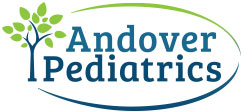Nutrition
All food in the United States is sold with a Nutrition Facts label, so that you can see what ingredients and nutrients are in your food. The U.S. Food and Drug Administration has an excellent website that explains each part of the Nutrition Facts label.
In general, you can be healthy while eating any kind of food. The important thing is to eat a mix of lots of different foods and to not eat too many calories. Our bodies feel “full” when our stomachs are literally full of food, regardless of what the food is. A teaspoon of lettuce will make you feel as full as a teaspoon of butter, but the calories are hugely different.
Calories are a unit of energy and any energy that your body does not use gets stored as fat. So, if I eat 5000 calories but sit on my couch all day, I will gain fat. If I eat 1000 calories and run a marathon, I will lose fat. However, neither of these scenarios is healthy. To be healthy, you need to eat roughly the same number of calories that you use. The reason teenagers tend to have increased appetites compared to when they were younger is because puberty uses a lot of energy!
Should I diet?
Please talk to your healthcare provider about dieting. In general, we do not recommend that kids diet, because they need energy (calories) to grow. Instead, we might recommend eating a little less or exercising more so that a child slows down their weight gain.
How to avoid over-eating:
- Take a standard serving out of the package and eat it off a plate instead of eating straight out of a large box or bag. This works well for snacks like potato chips.
- Take seconds of vegetables or salads instead of higher-fat, higher-calorie parts of a meal such as meats or desserts.
- When cooking in large batches, freeze food that you will not serve right away. This way, you won’t be tempted to finish eating the whole batch before the food goes bad. And you’ll have ready-made food for another day. Freeze in single-size meal containers.
- Try to eat three sensible meals at regular times throughout the day. Skipping meals may lead you to eat larger portions of high-calorie, high-fat foods at your next meal or snack. Eat breakfast every day.
- Plan your snacks. Eating too many snacks throughout the day may lead to weight gain.
- When you do have a treat like chips, cookies, or ice cream, eat only one serving, eat it slowly, and enjoy it!

